At the Midwife and the Baker, Fresh-Milled Whole Grains Pop Up in Every Bite
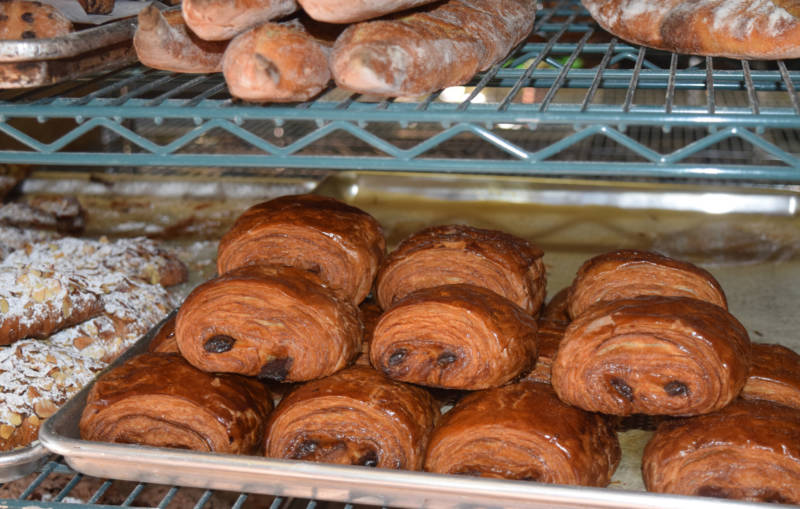
It's a hot, steamy Saturday morning in an industrial section of Mountain View and there's a line-up of eager people snaking out the narrow door of a bland, window-less, unmarked building. They're in this unlikely place to snatch up some of the most craveable artisan breads and pastries in the Bay Area, being produced by The Midwife and the Baker.
The crusty baguettes and dreamy croissants have won various "best of" rankings — like "best croissant San Francisco" and "best baguette" — and patrons of the restaurants, cafes, coffee bars, grocery stores and farmers markets that sell the bakery's delicious products can't get enough. So much so that some aficionados drive to the bakery itself to get their fix right out of the ovens.
The region's food culture has anointed the tastiest hand-crafted breads and pastries, making stars out of the bakers producing them in the process. But an increasingly common factor when it comes to respected bakers like Chad Robertson of Tartine, Josey Baker and Manresa Bread's Avery Ruzicka is that their quest for perfection has led them to milling their own organic grain, some grown in Northern California.
Add Thomas "Mac" McConnell to this list. The proprietor of The Midwife and the Baker, he grinds his grain on-premise for a simple reason: the results taste much better.
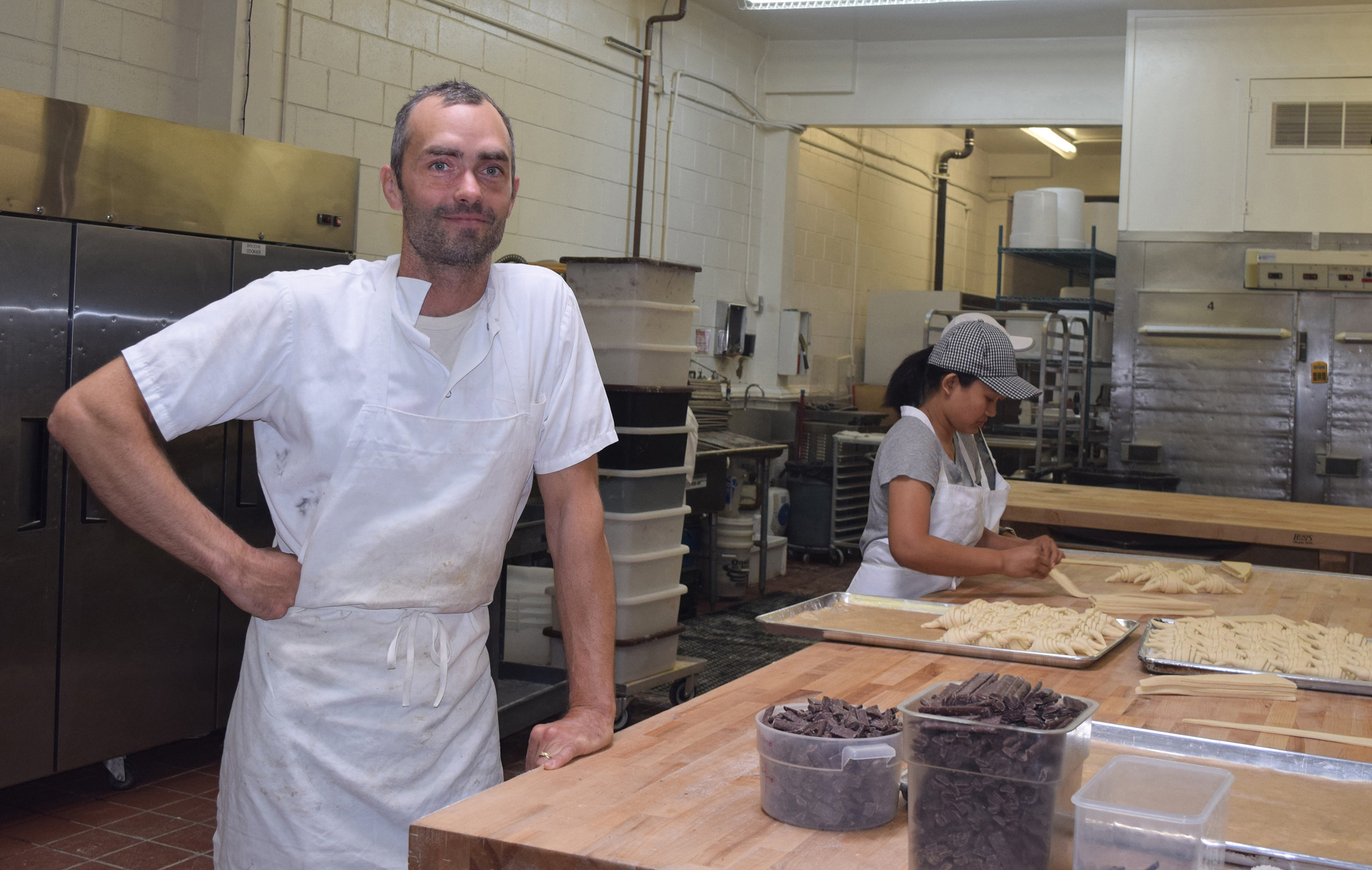
Engineering to baking
Passion led McConnell to the baking profession. Born, raised and educated in West Virginia, where he grew up on a sheep and cattle farm, his goal during undergrad and grad school in mechanical engineering was working on diesel engines, frequently used in farm equipment. Before a brief, post-graduate stint at Caterpillar, he saw the bread-making process up close at a bakery in his college town and later realized dealing with engines left a vast creative dearth.
With a new career in mind, the bakery's proprietor pointed McConnell to the country's two best "exploratory" baking schools. Thus in 2007, he moved west to attend the San Francisco Baking Institute (SFBI) and soon realized that the city "is a hub of artisan baking," he says.
After completing the school's five-month program, he worked in a Petaluma bakery, then trudged east to apprentice at the Berkshire Mountain Bakery, whose proprietor is renowned among the nation’s top artisan bakers.
In 2011, he was hired by SFBI owner Michel Suas — who's been referred to as "the breadmaker's guru" — to become an instructor in the bread program. Within the next few years, a couple of significant events happened. He met his soon-to-be wife, Jaime, a Noe Valley midwife, and encountered the bread from Dave Miller in Chico. "The crust aromas, other aromas, the texture and flavor of [Dave’s] bread was something I never achieved using flour that was a month old. You can't achieve that same complexity. It's like slightly burned honey; a sugary smell. You can't believe that's just flour, water and salt," he says.
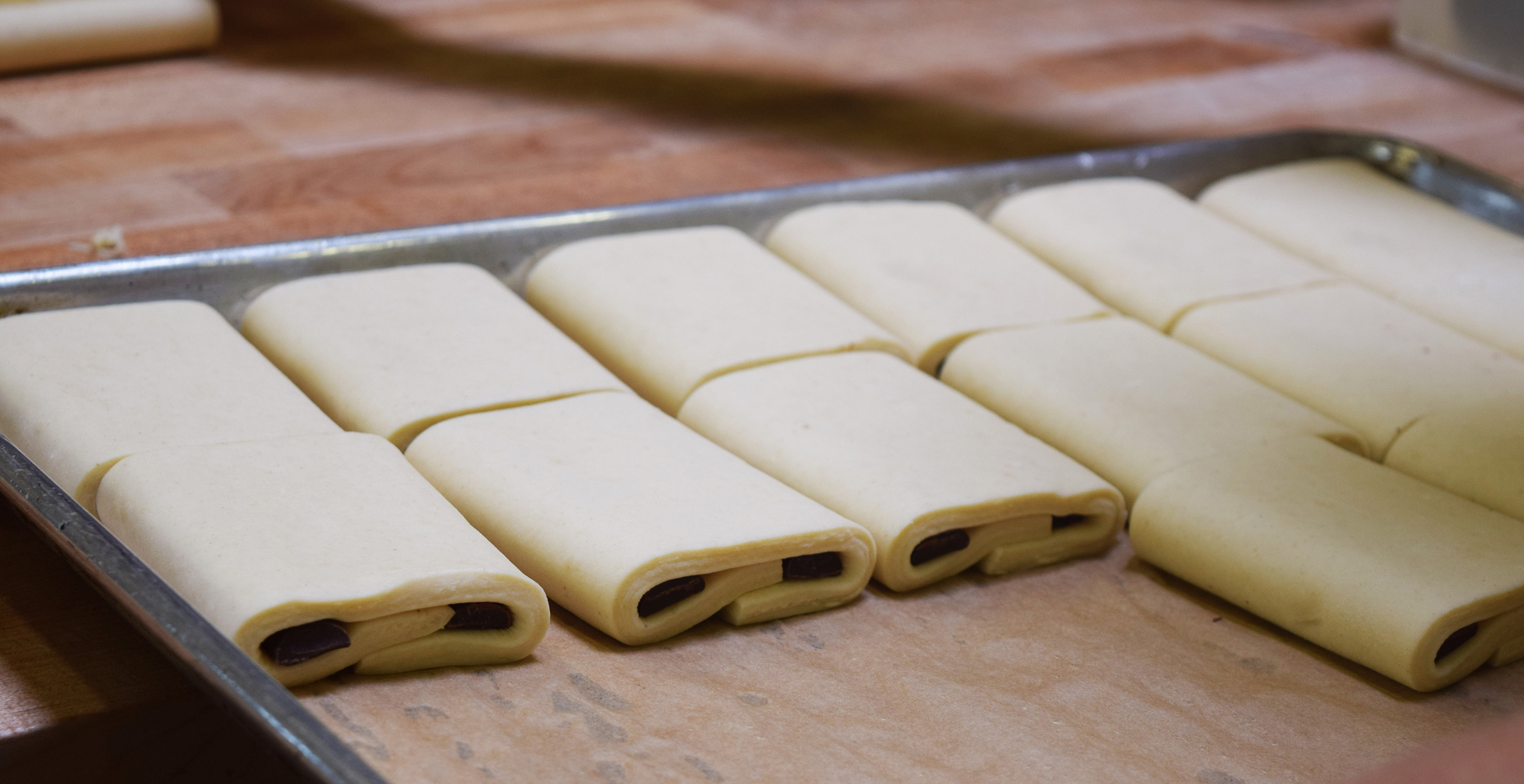
"Nose to the grindstone"
Today, McConnell's crew is grinding 3,000 pounds of grain weekly, producing flour on a daily basis. "The mill's running from 3 a.m. to noon or 1 o'clock," he explains. "We definitely have to monitor it. You know the old saying, nose to the grindstone. You don't want to run that thing out of grain." But if something goes awry with any bakery equipment, McConnell's mechanical engineering background comes in handy. "We don't miss that batch of something because we don't have to wait on a technician," he says.
McConnell is currently milling glenn wheat (a hard red wheat), rye, spelt (an ancient grain that's a wheat subspecies), Sonora (a white Western wheat ) and khorasan. The latter is an ancient grain that's the ancestor of modern durum wheat and known as kamut. His bakery's popular "country white" is actually half Sonora wheat. "It looks white but people don't know they're eating 50% whole grain," explains McConnell.
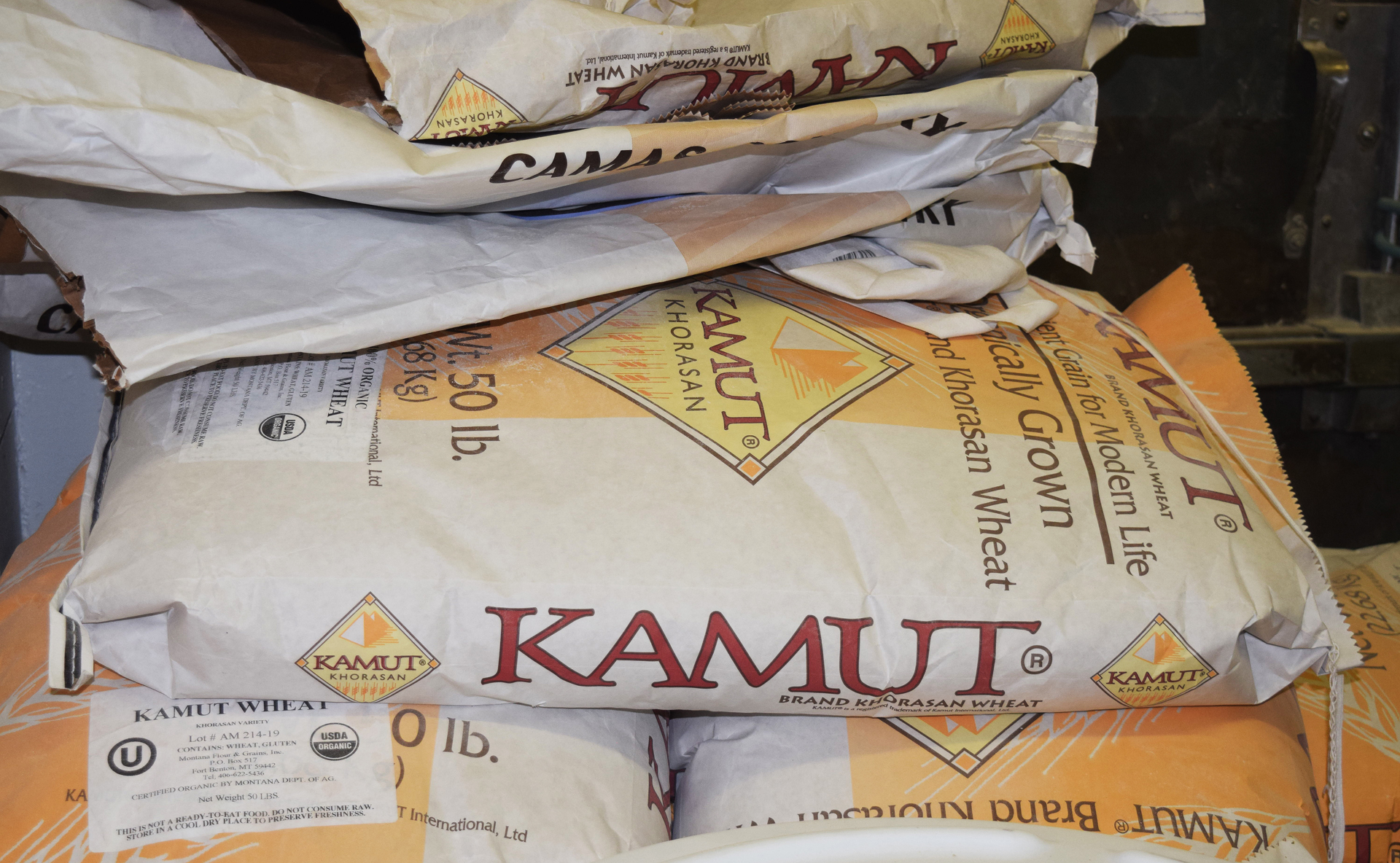
He gets his grain from some respected Northern California farmers including Full Belly, Frog Hollow and Coke Farms, along with Camus Country Mill in Oregon's Willamette Valley.
A future of freshly milled flour?
The delectable baked goods made with house-milled flour coming from bakers like McConnell, Robertson, Baker, Ruzicka and others underscore a growing trend in the bakery business. "The awareness of the whole-grain thing is something to watch," notes McConnell, although these yummy products represent a blip when it comes to the flour-based goods purchased today by American consumers.
The industrial food system is built around white flour made from specific wheat varieties not chosen for their taste characteristics. Stripping out the bran and germ from the starchy part of the wheat extends a product's shelf life even as it removes most of the vitamins, minerals and fiber. Many decades of consuming baked goods made from commodity white flour have trained American palates to expect soft, tasteless, gummy bread.
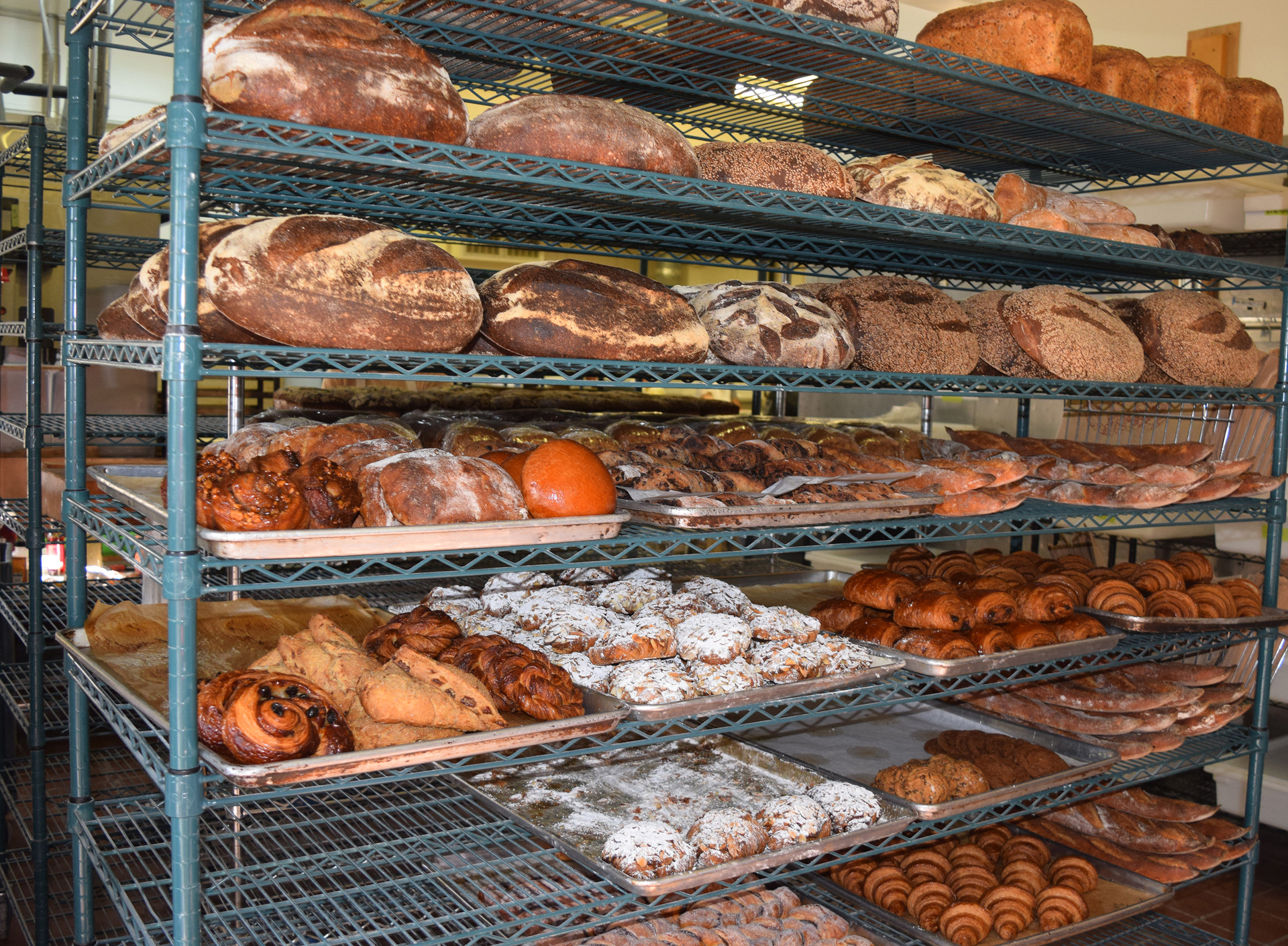
But small changes are afoot. Artisanal baking is on the rise, featuring slow, natural fermentations, heirloom grain and fresh milling. An important gating factor is making the growing of higher-quality grain economically viable for farmers, who will, in turn, then make their products available to bakers and increasing numbers of local grain mills, which is a hoped-for trend as well.
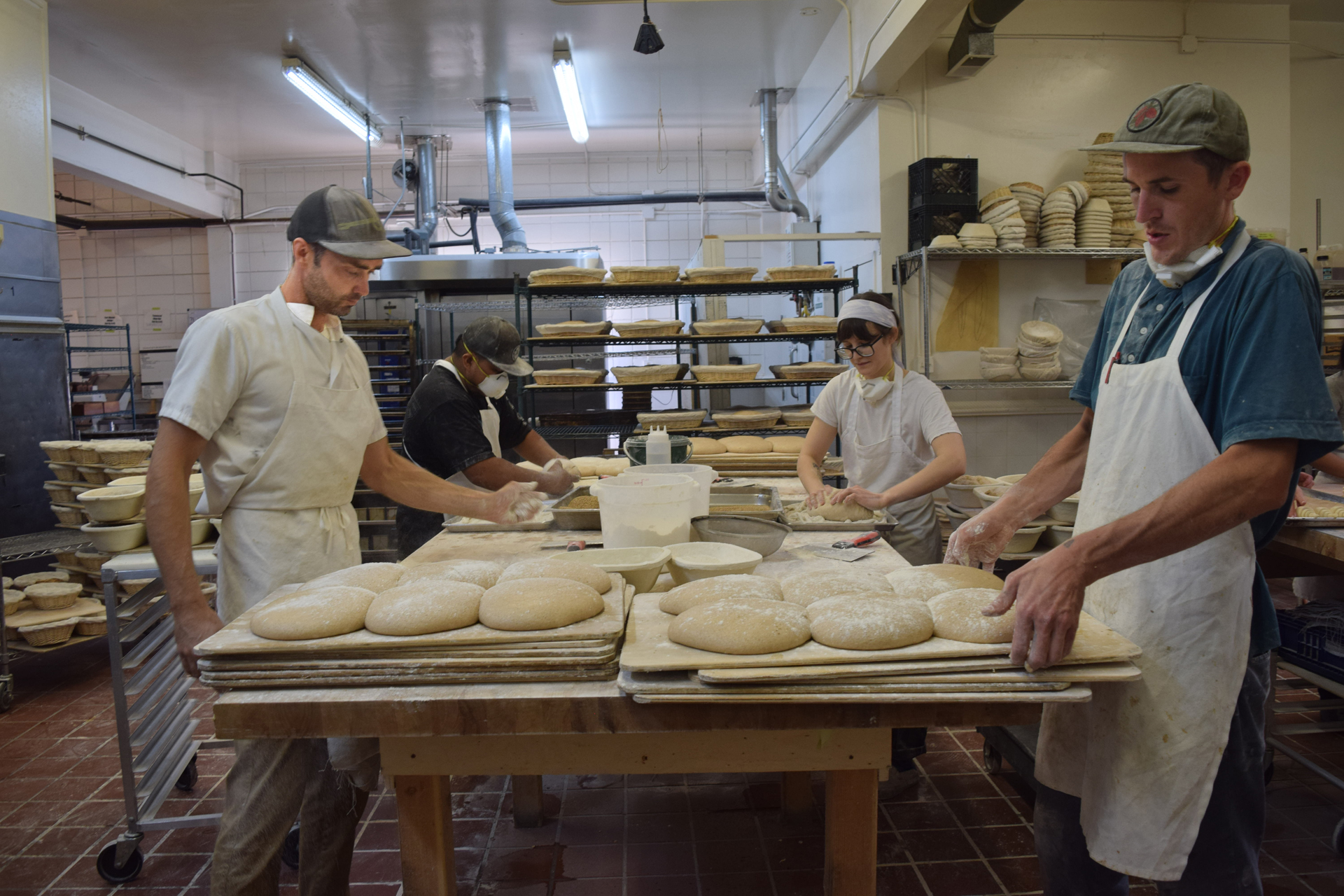
Communal bakery
With a staff of 40 including 26 hands-on bakers and an operation that is up and running 22 hours a day, McConnell, who lives in San Francisco, is a busy proprietor made even busier by the arrival of his two young children. Nevertheless, he has near-future plans that will thrill his many fans who now make pilgrimages to his bakery and currently crowd around the doorway to buy products from a nearby rack in the middle of this bustling bakery. "We're hoping to do a little take-away window at the end of the building," he reports.
"I've always dreamed of the bakery being a communal spot. We've stepped into a wholesale operation so we're probably never going to have that slower pace but I'd love to be known in Mountain View and surrounding communities as the place you go for bread. Or an espresso and a pastry," says McConnell.
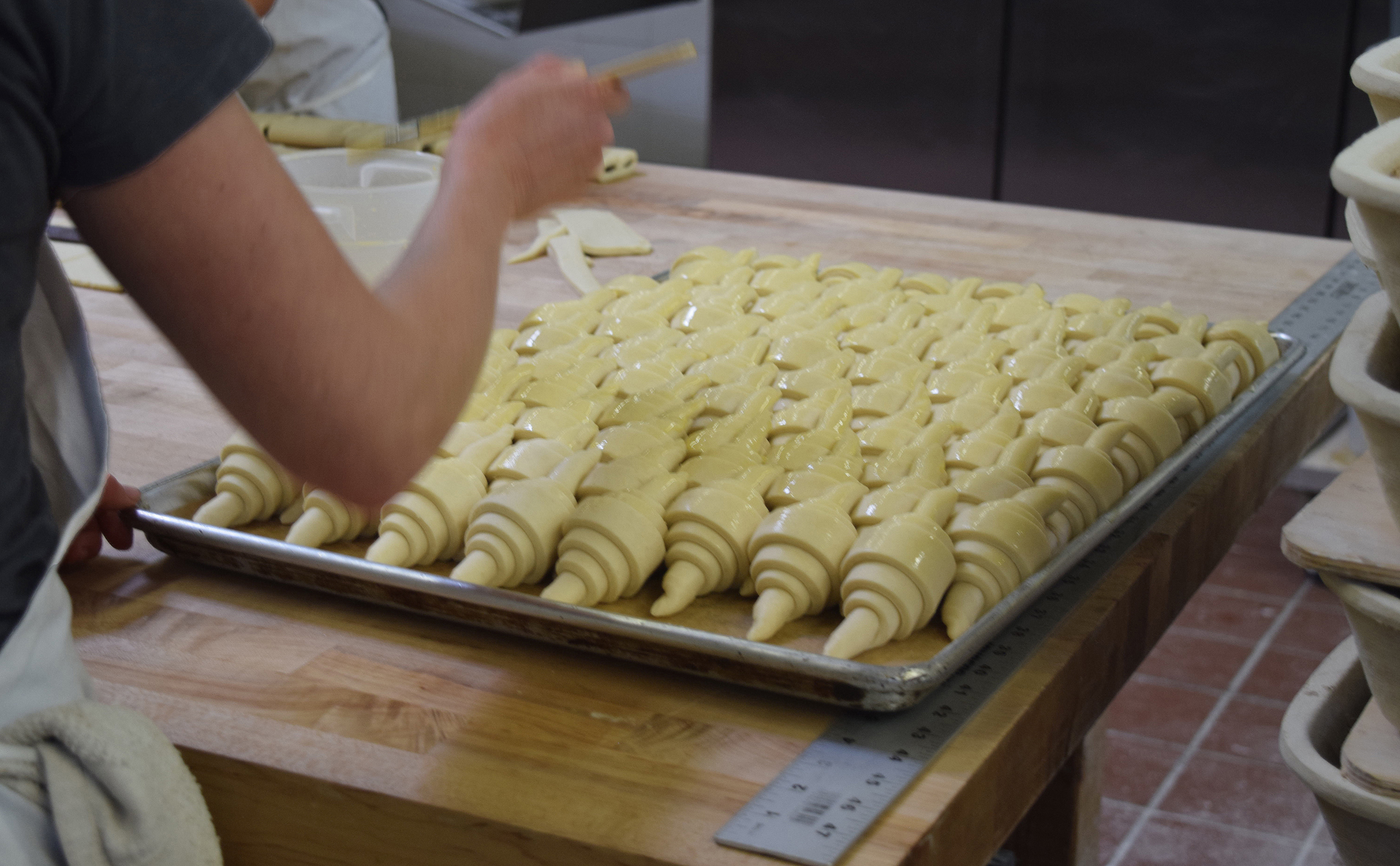
And the bread is a must, like the wonderful, sesame-coated whole-wheat bread, whose rich, wheaty flavor, fine crumb and smoky exterior are what bread should aspire to. The sturdy rye loaf has a pleasing texture despite the whole grain and a scrumptious, distinctly rye taste.
Even the flavorful, French-style "white" baguette contains 25% whole-grain kamut flour, elevating this delightful wand well above the flabby, small-taste norm. With a little butter melting into its fine crevices, it tastes like buttered popcorn.
Don’t forget about the pastries, which sometimes have a bit of whole grain snuck into them. Assisted by the manager of his operation, Sarah Cooper — whose baking background includes stints with the Thomas Keller empire and renowned Blue Hill at Stone Barns outside New York City — the bakery's non-bread side is heavenly.
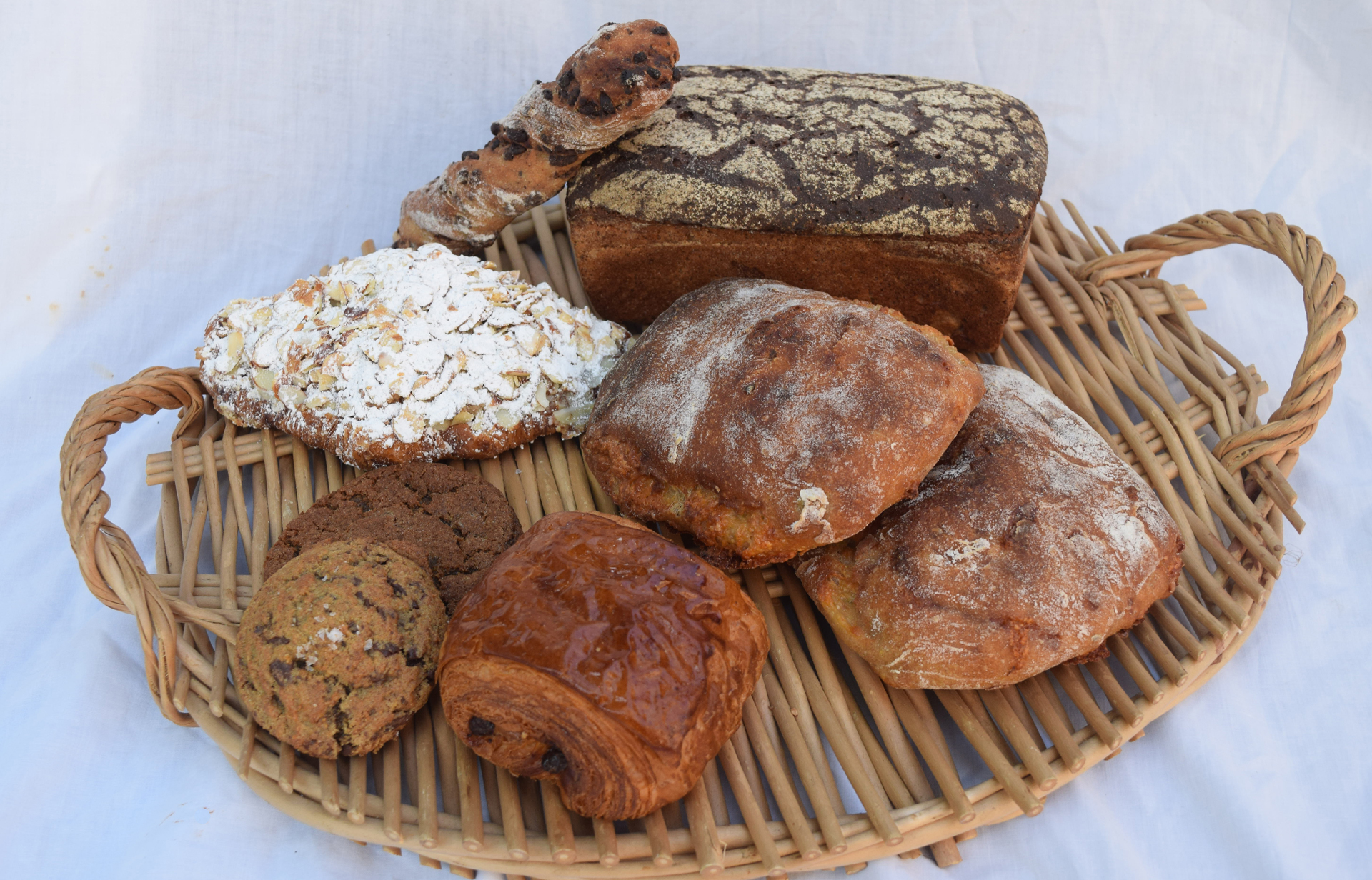
Almond croissants here are twice baked, stuffed with a layer of frangipane and coated with tons of sliced almonds. The renowned double-chocolate croissants are buttery, flaky perfection with extra textural interest coming from the coating of toasted sunflower seeds. When it comes to chocolate, look no further than the seemingly molten-center chocolate rye or chocolate whole wheat cookies.
On the savory side, the bakery's most beloved ciabatta, which is amped up with some whole grain, has an irresistible duality from spicy jalapeños and creamy cheddar.
Whether his customers march to the bakery itself or patronize the dozens of locations offering his divine baked goods, they'll be consuming delectable products that call out for repeat trips. And one day, he hopes that baked goods made from freshly milled whole grain will be the norm and not a trend.
The Midwife and the Baker
846 Independence Ave.
Mountain View
Open Monday-Saturday, 6:30 a.m.-12:30 p.m.
Retail locations